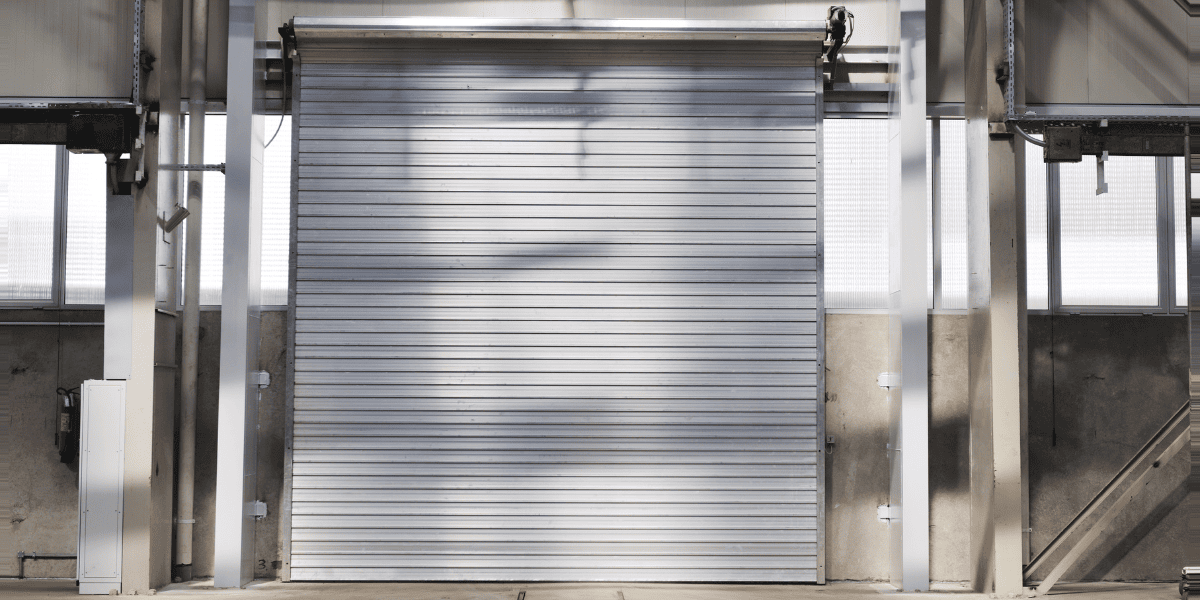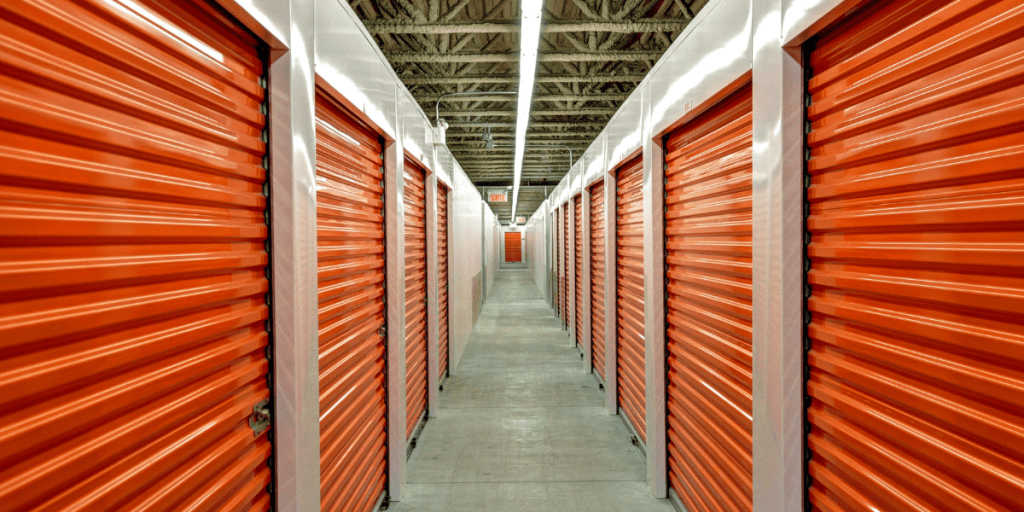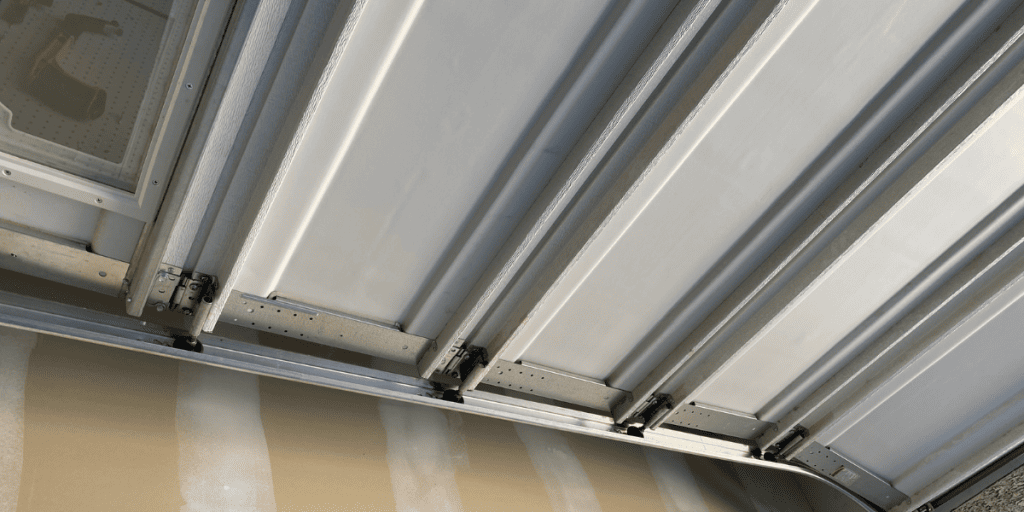Strength and Style: The Benefits of Steel Garage Doors
The Advantages of Steel Garage Doors – Expert Tips from Garage Door Repair Ormeau
The garage door is not only a functional element of a home but also plays a crucial role in enhancing its curb appeal. As one of the largest and most visible components of a house’s exterior, the garage door significantly influences the overall aesthetics and first impression of the property. Whether you’re planning to sell your home or simply want to make it more visually appealing, investing in an attractive and well-maintained garage door can make a substantial difference.
An aesthetically pleasing garage door can instantly elevate the entire facade of a house, giving it a more polished and sophisticated look. On the other hand, a worn-out or outdated garage door can detract from the overall appeal and give the impression of neglect. Therefore, it’s essential to consider the style, material, and condition of the garage door when trying to enhance the curb appeal of a property.
In this post, we will delve deeper into the advantages of steel garage doors, exploring each benefit mentioned above in detail. By understanding the significance of the garage door in enhancing curb appeal, we can appreciate the impact of choosing the right material. We will explore why steel stands out as an excellent choice and why it might be preferable over other materials. Additionally, we will address concerns related to maintenance, security, cost, and design versatility, providing readers with comprehensive insights into the world of steel garage doors and empowering them to make informed decisions when it comes to improving their homes. So, let’s get started and discover how a steel garage door can be a valuable investment for both practicality and aesthetics.
Durability and Longevity
Steel’s inherent strength and resistance to dents and impacts:
Steel is renowned for its exceptional strength and robustness, making it one of the most durable materials available for a wide range of applications. Its inherent strength stems from its crystalline structure, which consists of iron atoms arranged in a lattice with carbon atoms interspersed throughout. This atomic arrangement grants steel high tensile strength, meaning it can resist large amounts of tension or pulling force without breaking.
Furthermore, steel exhibits remarkable resistance to dents and impacts, making it an ideal material for structures that need to withstand heavy loads or potential collisions. The combination of its toughness and ductility allows it to absorb energy without fracturing easily. For instance, in the automotive industry, steel is commonly used to construct vehicle frames, providing occupants with a high level of safety during accidents due to its ability to deform and crumple without collapsing entirely.
Minimal maintenance requirements and long lifespan:
Another significant advantage of steel is its relatively low maintenance requirements, contributing to its long lifespan. When properly coated or galvanized, steel becomes highly resistant to corrosion, which is one of the main causes of material degradation and deterioration. These protective coatings form a barrier between the steel surface and the surrounding environment, preventing moisture, chemicals, and other corrosive agents from reaching the metal.
As a result, steel structures, such as bridges, buildings, and industrial facilities, can maintain their integrity and functionality for decades or even centuries with minimal upkeep. This characteristic not only saves time and money on maintenance but also reduces the environmental impact associated with regular repairs or replacements.
Withstanding harsh weather conditions:
Steel’s durability extends to its ability to withstand a wide range of harsh weather conditions. Whether it’s scorching heat, bitter cold, heavy rainfall, or strong winds, properly designed and constructed steel structures can endure and remain stable under these challenging circumstances.
In regions prone to hurricanes, tornadoes, or earthquakes, steel-framed buildings have proven to be highly resilient. The flexibility and strength of steel allow structures to sway or absorb energy during seismic events, reducing the risk of collapse. Additionally, steel roofing and cladding offer excellent protection against extreme weather events, including hail and heavy snow loads.
Moreover, steel’s resistance to fire adds another layer of safety in case of unexpected accidents. While it may lose some of its structural strength under high temperatures, steel does not burn or contribute to the spread of flames, making it a popular choice for fire-resistant construction.
Enhanced Security
Steel’s ability to provide a secure barrier against intruders:
Steel is renowned for its exceptional strength and durability, making it an ideal material for providing enhanced security against intruders. Compared to traditional building materials like wood or aluminum, steel offers a higher level of resistance to forced entry attempts. The innate strength of steel serves as a robust physical barrier, making it much more difficult for intruders to break through or damage compared to other materials.
The thickness and quality of the steel used in security doors and windows play a significant role in their effectiveness. High-grade steel, combined with advanced manufacturing techniques, results in an even stronger and sturdier security solution. Intruders will find it extremely challenging to breach a properly installed steel barrier, which acts as a powerful deterrent to potential burglars or criminals.
Features like multi-point locking systems and reinforced panels:
To further enhance the security provided by steel barriers, advanced features like multi-point locking systems and reinforced panels are often incorporated. These features add multiple layers of protection, making it even more challenging for intruders to gain unauthorized access.
- Multi-point locking systems: Unlike traditional single-point locks, multi-point locking systems secure the door or window at multiple points along its frame. These locking mechanisms distribute the force of any attempted break-in across multiple points, reducing the likelihood of a successful intrusion. As a result, even if an intruder manages to compromise one locking point, the other points remain intact, maintaining the overall security of the barrier.
- Reinforced panels: Steel security barriers may be equipped with reinforced panels that have been engineered to withstand significant impact. These panels are designed to resist drilling, cutting, or kicking, providing an added layer of defense against forced entry attempts. Reinforced panels significantly increase the time and effort required for an intruder to breach the barrier, discouraging them from continuing their break-in attempt.
Peace of mind for homeowners regarding their property’s safety:
The presence of a steel security barrier offers homeowners unparalleled peace of mind regarding the safety and protection of their property. Knowing that their doors, windows, or other access points are fortified with robust steel materials and advanced security features, homeowners can feel confident in deterring potential burglars and criminals.
By investing in enhanced security measures like steel barriers, homeowners can significantly reduce the risk of break-ins and property damage. The added sense of security allows them to focus on other aspects of their lives without constant worry about their property’s safety. This peace of mind is particularly valuable when homeowners are away from home for extended periods or during nighttime when security concerns may be more prominent.
Furthermore, steel security barriers not only protect against intruders but also offer additional benefits like improved energy efficiency and noise reduction. The durability of steel ensures that these security features remain effective for an extended period, making it a long-term investment in the overall well-being of the property and its occupants.
Energy Efficiency
Insulated Steel Doors and Their Impact on Temperature Regulation:
Insulated steel doors play a crucial role in maintaining energy efficiency, particularly in buildings and homes. They are designed with a layer of insulating material between two steel panels, which helps create a thermal barrier and minimizes the transfer of heat between the interior and exterior of the building.
This feature has a significant impact on temperature regulation for several reasons:
- Heat Loss Prevention: In colder climates, insulated steel doors prevent heat from escaping the building, thus reducing the reliance on heating systems to maintain comfortable indoor temperatures. By minimizing heat loss through doors, occupants can enjoy a consistently warm environment, and the heating system operates more efficiently and consumes less energy.
- Heat Gain Prevention: In warmer climates, insulated steel doors act as a barrier against outside heat, reducing the amount of heat entering the building. This helps alleviate the workload of air conditioning systems, leading to lower energy consumption and improved cooling efficiency.
- Air Leakage Reduction: Insulated steel doors are designed with tight seals and weatherstripping, which significantly reduce air leakage around the door frame. This prevents drafts and unwanted airflow, enhancing indoor comfort and decreasing the strain on heating and cooling systems.
- Condensation Control: Insulated doors also help control condensation, as they maintain a more stable indoor temperature. This is particularly important in regions with high humidity levels, as excessive condensation can lead to mold growth and deterioration of building materials.
Reduction in Energy Costs and Carbon Footprint:
The utilization of insulated steel doors brings about several benefits related to energy consumption and carbon emissions:
- Lower Energy Bills: As mentioned earlier, insulated steel doors improve temperature regulation, reducing the need for continuous heating or cooling. Consequently, occupants can achieve substantial energy savings, leading to lower utility bills over time.
- Long-Term Cost Savings: While the initial cost of insulated steel doors may be higher compared to standard doors, the long-term savings on energy bills make them a cost-effective investment. Many studies have shown that these doors can pay for themselves through energy savings within a few years.
- Environmental Impact: By curbing the energy consumption of buildings, insulated steel doors contribute to a reduction in greenhouse gas emissions and the overall carbon footprint. Lower energy demand means fewer fossil fuels burned for electricity generation, thereby mitigating the impact of climate change.
- Sustainable Building Practices: As energy efficiency gains importance in the construction industry, using insulated steel doors aligns with sustainable building practices. It reflects a commitment to reducing environmental impacts and demonstrates responsible resource utilization.
Cost-Effectiveness
Cost-effectiveness is a crucial aspect to consider when making financial decisions, whether it’s related to personal expenses, business investments, or purchasing a property like a home. In the context of home ownership, cost-effectiveness refers to the ability of a property to provide benefits and value that outweigh the initial costs involved.
Comparing initial costs with long-term savings:
When purchasing a home, buyers typically face a considerable upfront cost, including the down payment, closing costs, and any immediate repairs or renovations required. However, a cost-effective home will demonstrate significant long-term savings that justify these initial expenses.
One of the primary ways this is achieved is through energy-efficient features. Homes with energy-efficient appliances, lighting, insulation, and heating/cooling systems can substantially reduce utility bills over time. Energy-efficient homes are not only environmentally friendly but can also save homeowners thousands of dollars in utility costs throughout their ownership.
Furthermore, location plays a vital role in long-term savings. Homes situated near public transportation, schools, shopping centers, and job opportunities can reduce commuting expenses and increase convenience, ultimately saving the homeowner time and money.
Quieter Operations
Steel Garage Doors’ Noise Reduction Properties:
Steel garage doors are known for their durability and strength, but they also offer excellent noise reduction properties compared to other materials like aluminum or wood. The design and construction of steel garage doors contribute to their quieter operations.
- Thickness and Insulation: Steel garage doors come in various thicknesses, typically measured in gauges. Thicker steel panels tend to be more effective at reducing noise as they provide better sound insulation. Additionally, many steel garage doors come with built-in insulation, which further dampens sound vibrations and reduces noise transmission.
- Rubber Weatherstripping: High-quality steel garage doors often feature rubber weatherstripping along the edges. This rubber seal not only helps in weatherproofing the garage but also acts as a buffer to reduce noise by absorbing vibrations when the door is in operation.
- Nylon Rollers: The rollers that facilitate the smooth movement of the garage door along the tracks can be made of nylon. Nylon rollers create less friction and noise compared to metal rollers, resulting in quieter door operations.
- Professional Installation: Proper installation is crucial for ensuring optimal noise reduction. When installed correctly, the door fits snugly within the frame, minimizing gaps that could allow sound to escape.
Choosing the Right Insulation for Maximum Soundproofing:
Selecting the right insulation for a steel garage door is crucial in achieving maximum soundproofing and noise reduction.
There are a few options to consider:
- Polyurethane Insulation: Polyurethane is a popular choice for garage door insulation due to its excellent sound-dampening properties. It fills the space between the steel panels and provides a solid barrier against noise transmission.
- Polystyrene Insulation: Polystyrene is another option for insulation, though it may not provide as much soundproofing as polyurethane. However, it still offers some level of noise reduction and thermal insulation.
- Insulation R-Value: The R-value measures the insulation’s effectiveness in resisting heat flow. A higher R-value indicates better insulation performance. While R-value is not directly linked to soundproofing, it can correlate with better noise reduction capabilities.
- Full Coverage: Ensure that the insulation is well-distributed and covers the entire garage door surface. Any gaps or areas without insulation will allow sound to pass through.
- Professional Advice: When selecting insulation for your garage door, it’s best to consult with a professional garage door installer. They can recommend the most suitable insulation based on your specific needs and the local climate.
Eco-Friendly Benefits
Steel’s Recyclability and Sustainability:
One of the primary eco-friendly benefits of steel is its recyclability and sustainability. Steel is one of the most recycled materials in the world, with an impressive recycling rate. When steel products reach the end of their useful life, they can be easily collected, processed, and reused to create new steel products. This recycling process significantly reduces the demand for raw materials and helps conserve natural resources.
The recycling process for steel also requires much less energy compared to producing steel from raw materials. Recycling steel can save up to 60% of the energy that would be needed to manufacture steel from scratch. This energy-saving aspect plays a crucial role in reducing greenhouse gas emissions and mitigating climate change.
Furthermore, steel recycling helps divert a substantial amount of waste from landfills, reducing the environmental burden associated with waste disposal. By choosing products made from recycled steel or opting for steel products that are easily recyclable at the end of their life, individuals and industries can actively contribute to sustainable practices and support a circular economy.
Low-Maintenance Features
Resistant to warping, rotting, and pests:
When it comes to low-maintenance features in construction and home improvement, having materials that are resistant to warping, rotting, and pests is essential. One such material that fits the bill is steel. Steel is a robust and durable material that can withstand various environmental challenges, making it an excellent choice for garage doors.
- Warping: Unlike wood, which is susceptible to warping due to moisture and temperature changes, steel garage doors remain unaffected by these factors. They maintain their shape and structural integrity over time, ensuring smooth and reliable operation.
- Rotting: Traditional wooden garage doors are prone to rotting, especially in humid or wet conditions. On the other hand, steel garage doors do not rot, ensuring a longer lifespan and less need for repairs or replacements.
- Pest Resistance: Steel is inhospitable to pests like termites and carpenter ants, which can cause significant damage to wooden doors. By choosing a steel garage door, homeowners can eliminate the risk of pest infestations and reduce the need for pest control measures.
How to clean and maintain steel garage doors:
Keeping steel garage doors in top condition requires minimal effort.
Here are some simple steps to clean and maintain steel garage doors:
- Regular Cleaning: Clean the surface of the garage door periodically to remove dust, dirt, and grime. Use a soft cloth or sponge with mild soap and water to wipe down the door’s exterior. Avoid using abrasive materials or harsh chemicals that could damage the paint or finish.
- Lubrication: Apply a silicone-based lubricant to the moving parts of the garage door, such as hinges, rollers, and tracks. This prevents friction and ensures smooth operation, reducing wear and tear on the components.
- Inspection: Conduct regular visual inspections of the garage door to identify any signs of damage or wear. Look for dents, scratches, or chipped paint, and address them promptly to prevent rust formation.
- Rust Prevention: If you notice any scratches or chips that expose the bare metal, touch up the paint as soon as possible to prevent rust from forming. Rust can compromise the structural integrity of the door and affect its appearance.
- Keep the Area Clean: Ensure the surrounding area of the garage door is clear from debris, leaves, and other materials that can accumulate and cause issues with the door’s operation.
Frequently Asked Questions
What are the advantages of choosing steel garage doors over other materials?
Steel garage doors offer several advantages, including exceptional durability, high strength, and low maintenance requirements. They are also resistant to harsh weather conditions, dents, and rust, making them a long-lasting and reliable option for your garage.
Are steel garage doors a good investment for my home?
Yes, steel garage doors are a fantastic investment for your home. Their durability ensures they last for many years, providing an excellent return on your investment. Moreover, steel doors can enhance your home’s curb appeal and potentially increase its resale value.
How do steel garage doors enhance the security of my property?
Steel garage doors are known for their superior strength, making them a robust barrier against potential intruders. Many steel doors also come with advanced security features, such as multi-point locking systems, making unauthorized access even more challenging.
Will a steel garage door require a lot of maintenance?
Not at all! One of the key benefits of steel garage doors is their low maintenance requirements. Unlike wood doors that may need periodic refinishing, steel doors only require occasional cleaning and lubrication of moving parts to keep them in optimal condition.
Can I customize the appearance of a steel garage door to match my home’s style?
Absolutely! Steel garage doors are highly versatile and come in various designs, colors, and finishes. You can choose from different panel styles, window options, and decorative hardware to complement your home’s architectural style.
Conclusion
In the long run, choosing a steel garage door is not just a short-term improvement to your home, but a lasting investment. The initial cost may be higher than some other materials, but the benefits you gain far outweigh this initial expense.
By opting for a steel garage door, you’re prioritizing security, style, and overall value. It’s a decision that not only benefits you while you live in your home but also contributes positively should you decide to sell it in the future.
In conclusion, when considering garage door replacements or installations, steel doors emerge as a compelling choice due to their unmatched strength, diverse styles, and long-term advantages. They provide a perfect blend of security and aesthetics, making them an excellent addition to any home. So, make the smart choice and invest in a steel garage door for a more secure, stylish, and valuable property.



